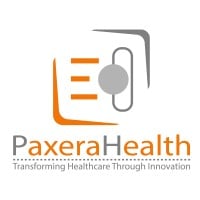The Data Science Developer designs and develops solutions for medical imaging, applying machine learning algorithms and working in cross-functional teams to improve diagnosis accuracy.
SUMMARY:
The Data Science Developer is responsible for understanding the business problems, identifying/applying the right AI or cognitive computing technologies to solve problems, and is involved in the formulation and execution of technology solutions.
ESSENTIAL FUNCTIONS AND RESPONSIBILITIES
- Collect, preprocess, and analyze large datasets to identify patterns and features.
- Develop and apply machine learning algorithms to improve diagnosis accuracy and reduce false positives.
- Work with cross-functional teams, including radiologists, medical professionals, and software engineers, to develop and test new algorithms and models.
- Design and develop software tools and frameworks to automate the processing and analysis of medical images.
- Implement deep learning architectures for image analysis and classification tasks.
- Participate in the design and implementation of clinical studies to evaluate the performance of developed algorithms and models.
- Ensure that developed models and algorithms meet regulatory and quality standards
- Keep up-to-date with the latest trends and technologies in the field of medical imaging and data science.
REQUIRED EDUCATION AND EXPERIENCE
- 5 years of experience in the development and integration of complex imaging systems and/or medical image diagnosis software
- Experience in developing with C++
- Knowledge of DICOM development and troubleshooting experience
- Prior experience developing healthcare components (PACS, VNA, RIS) and workflows
- Experience with C++, C#, Python, machine learning
- B.S. in Computer Science or related field. An M.S. or PhD is a plus
Top Skills
C#
C++
Dicom
Machine Learning
Python
PaxeraHealth Boston, Massachusetts, USA Office
85 Wells av, Boston, MA, United States, 02459
Similar Jobs
Digital Media • Gaming • Information Technology • Software • Sports • Esports • Big Data Analytics
Lead a team of data scientists to develop and implement advanced machine learning models, improving search and content generation capabilities for the Sportsbook industry.
Top Skills:
Large Language ModelsMachine LearningNatural Language ProcessingPythonVector Databases
Healthtech • Software • Analytics • Biotech • Pharmaceutical • Manufacturing
The Data Science Engineer will design data pipelines, ensure data integration, automate data processes, and collaborate with teams to improve data efficiency while developing chatbots.
Top Skills:
Aws BedrockData PipelinesEltETLGpt-4Oracle Pl/SqlReltio MdmUnix Shell
Financial Services
This role involves building and deploying AI/ML solutions for financial reconciliation, ensuring operational performance and participating in design discussions.
Top Skills:
AzureBig-DataData ScienceMachine LearningPostgresPower BIPythonSQLUnix/Linux
What you need to know about the Boston Tech Scene
Boston is a powerhouse for technology innovation thanks to world-class research universities like MIT and Harvard and a robust pipeline of venture capital investment. Host to the first telephone call and one of the first general-purpose computers ever put into use, Boston is now a hub for biotechnology, robotics and artificial intelligence — though it’s also home to several B2B software giants. So it’s no surprise that the city consistently ranks among the greatest startup ecosystems in the world.
Key Facts About Boston Tech
- Number of Tech Workers: 269,000; 9.4% of overall workforce (2024 CompTIA survey)
- Major Tech Employers: Thermo Fisher Scientific, Toast, Klaviyo, HubSpot, DraftKings
- Key Industries: Artificial intelligence, biotechnology, robotics, software, aerospace
- Funding Landscape: $15.7 billion in venture capital funding in 2024 (Pitchbook)
- Notable Investors: Summit Partners, Volition Capital, Bain Capital Ventures, MassVentures, Highland Capital Partners
- Research Centers and Universities: MIT, Harvard University, Boston College, Tufts University, Boston University, Northeastern University, Smithsonian Astrophysical Observatory, National Bureau of Economic Research, Broad Institute, Lowell Center for Space Science & Technology, National Emerging Infectious Diseases Laboratories



